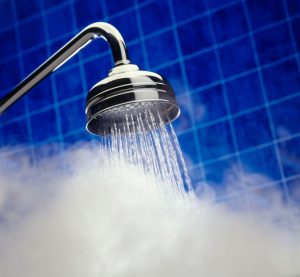What’s the ideal bathing temperature? This age-old question has sparked debate,
with conflicting views on the benefits and risks of hot versus cold water.
From skin dryness concerns to muscle recovery potential, let’s dive into the science behind bathing temperatures.
Avoiding Hot Water for Skin

According to dermatological advice, frequently bathing with hot water
can strip your skin of its natural oils and moisture. This can lead to:
- Dryness and itching
- Flakiness
- Exacerbation of eczema
- Early wrinkling and aging
For optimal skin health, it’s generally recommended to bathe with normal
or lukewarm water.
This helps maintain your skin’s natural barrier and prevent dryness.
As @FirstDoctor on X advises, “Avoid bathing with hot water.
…Hot water can damage the cells in your skin…
Take your bath with normal or lukewarm water.”
The Muscle Recovery Perspective: Surprising Benefits of Hot Water Immersion
Recent research, as highlighted by fitness expert Brad Schoenfeld,
presents a different perspective on hot water.
Studies indicate that post-exercise hot water immersion can:
- Enhance muscular blood flow, potentially aiding muscle protein synthesis and hypertrophy.
- Increase plasma nitrite levels, promoting healthy blood vessels.
- Trigger an inflammation response (interleukin-6 release), which plays a role in muscle repair.
- Reduce cortisol levels, contributing to stress reduction.
- Provide a more enjoyable experience compared to exercise alone.
While cold water plunges are often recommended for recovery,
hot water immersion offers unique vascular benefits.
As this X post and research paper suggest, hot water can be beneficial, especially post-workout.
- Use lukewarm water for daily bathing to maintain skin health.
- Reserve hot water immersion for occasional use, such as after intense workouts or during cold weather.
- Limit hot water exposure to short durations to minimize skin damage.
- Moisturize your skin after bathing to replenish lost moisture.
understanding the science behind hot and cold water can help you make informed choices.
So Which one would you try first?
Read More: 63 List Of Malaria Free Countries
